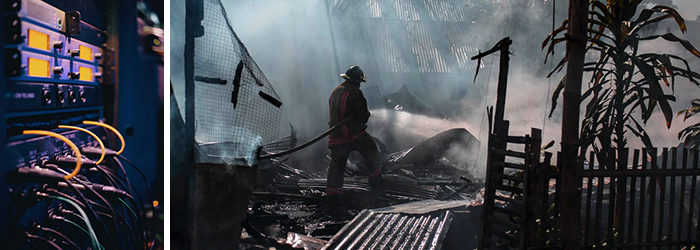European citizens, state institutions, EU bodies and the economy need to be protected from the continued threats of terrorism and organised crime, including firearms trafficking, drug trafficking and trafficking in human beings and trafficking of cultural goods. Human and social dimensions of criminality and violent radicalisation require better understanding so as to improve public policies in terms of security. Strengthening protection and security through better border management, including maritime and land borders, is also key. Cybercrime is on the increase and related risks are diversifying as the economy and society digitalise. Europe needs to continue its efforts to improve cybersecurity, digital privacy, personal data protection and combat the spread of false and harmful information in order to safeguard democratic, social and economic stability. Further efforts are required to limit the effects on lives and livelihoods of extreme weather events which are intensifying due to climate change, such as floods, storms, heat waves or droughts leading to forest fires, land degradation and other natural disasters, e.g. earthquakes. Disasters, whether natural or human-made, can put at risk important societal functions and critical infrastructures, such as communication, health, food, drinking water, energy supply, transport, security and government.
Security research is part of the wider comprehensive EU response to security threats. It contributes to the capability development process by enabling the future availability of technologies, techniques and applications to fill capability gaps identified by policy-makers and practitioners and civil society organisations.
Already, funding to research through the EU’s framework programme has represented around 50% of total public funding for security research in the EU. Full use will be made of available instruments, including the European space programme (Galileo and EGNOS, Copernicus, Space Situational Awareness and Governmental Satellite Communications). Whereas research and innovation activities under this Programme will have an exclusive focus on civil applications, coordination with EU-funded defence research will be sought in order to strengthen synergies, recognizing that there are areas of dual-use technology. Duplication of funding is avoided. Cross-border collaboration contributes to developing a European single security market and improving industrial performance, underpinning the EU’s autonomy. Due attention will be given to the human understanding and perception of security.
The following intervention areas will be addressed:
- Protection from the continued threats of terrorism and organised crime, including:
-
-
- Firearms trafficking;
- Drug trafficking;
- Trafficking in human beings;
- Trafficking of cultural goods.
-
- Human and social dimensions of criminality and violent radicalisation.
-
- Strengthening protection and security through better border management.
- Limit the effects on lives and livelihoods of extreme disasters, whether natural or human-made, including those from terrorist attacks, climate-related and other extreme events.
Build resilience to cyber-attacks and create effective cyber deterrence, while making sure that data protection and the freedom of citizens are strengthened.
